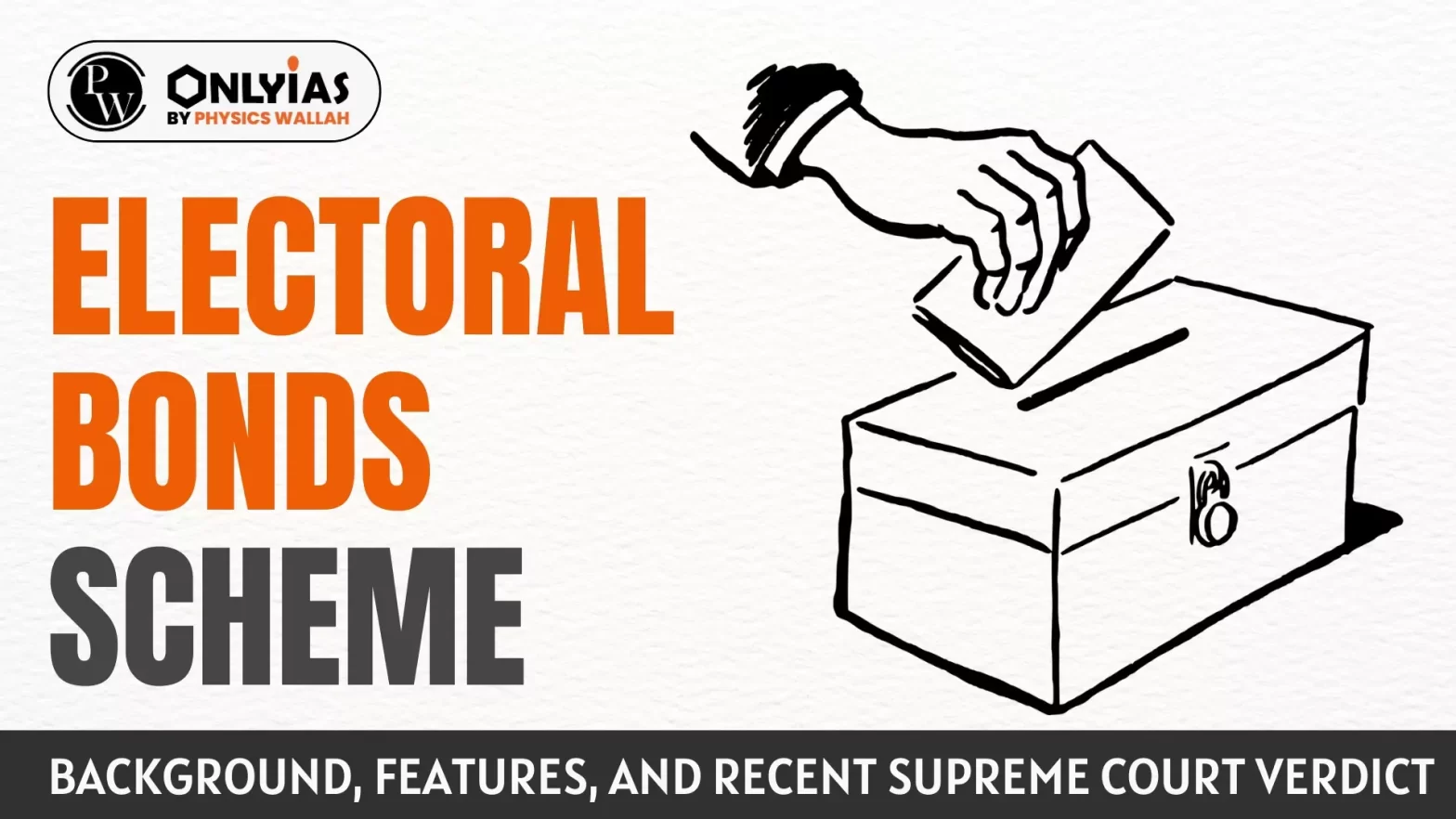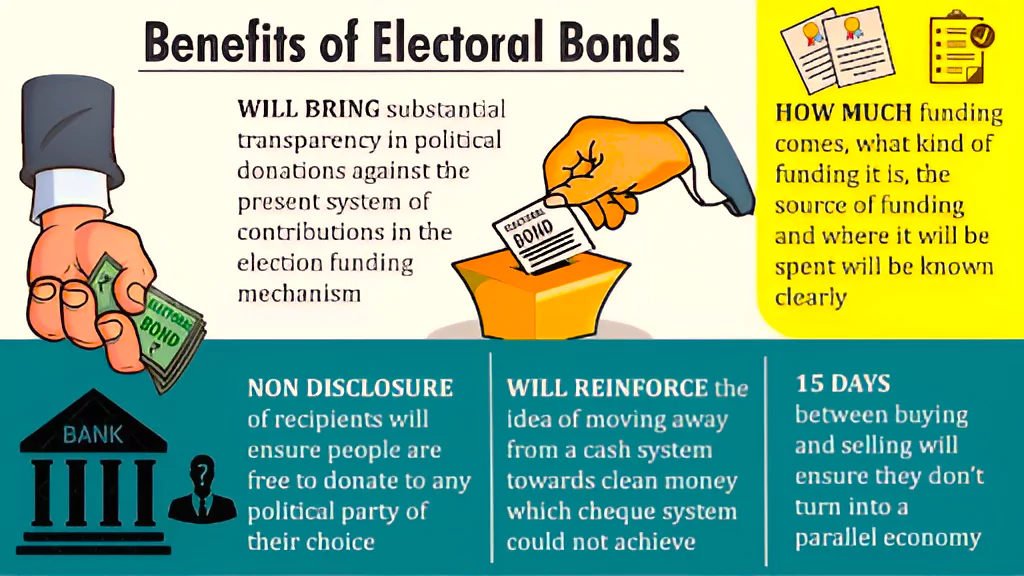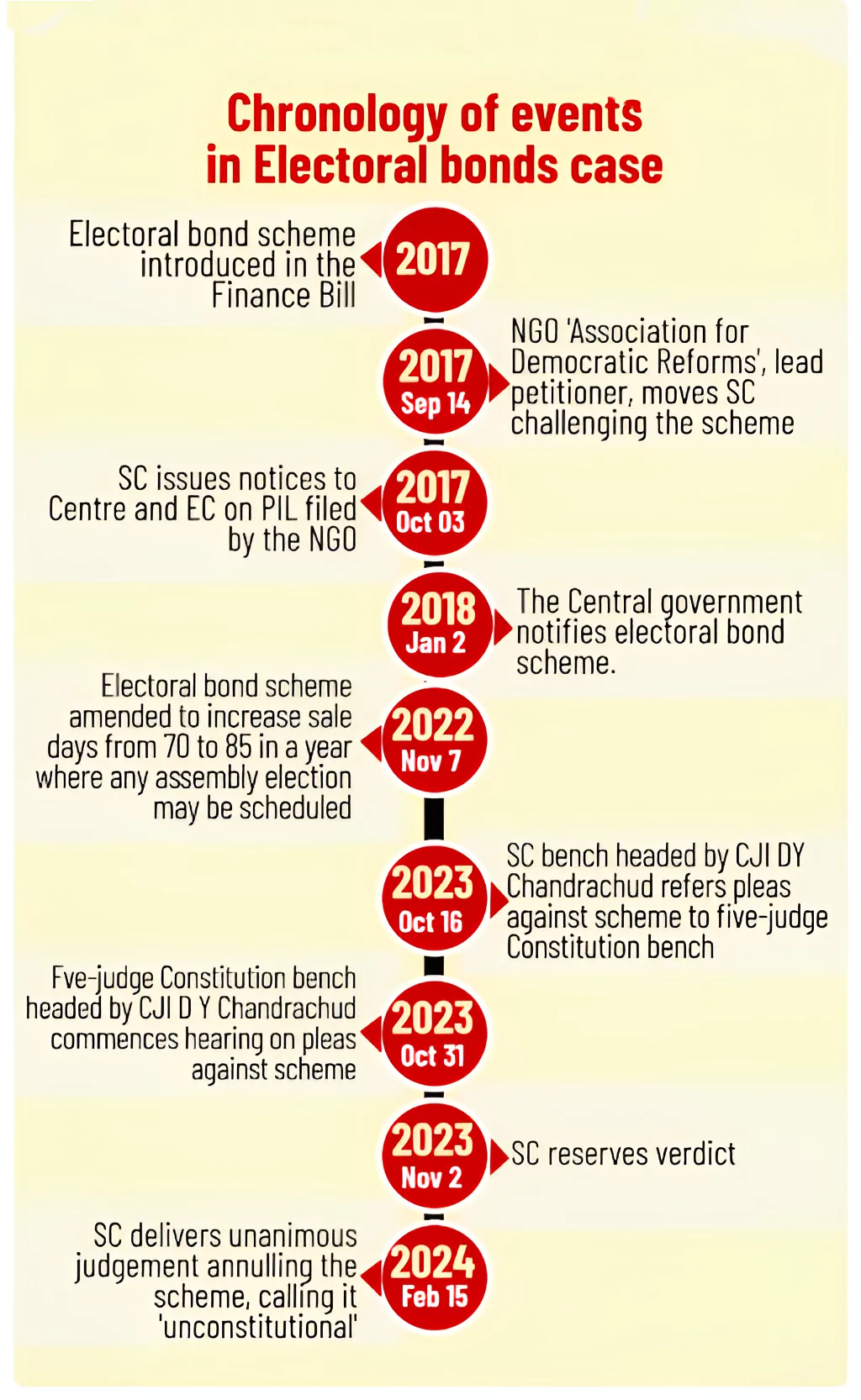![]() 16 Feb 2024
16 Feb 2024

This editorial is based on the news “Supreme Court strikes down electoral bonds scheme: ‘unconstitutional’, ‘arbitrary and violative of Article 14” which was published in the Indian Express. The Supreme Court struck down the electoral bonds scheme asserting that the scheme violates the right to information under Article 19(1)(a) of the Constitution.
| Relevancy for Prelims: Supreme Court, Political Funding in India, Election Commission Of India and Reserve Bank Of India (RBI), and Fundamental Rights (Article 12-35).
Relevancy for Mains: Electoral Bonds Scheme: Background, Key Features, Court Proceedings and Judgments. |
|---|


There is a need to strike a balance between transparency and anonymity. Many jurisdictions achieve this by allowing anonymity for small donors while mandating disclosures for larger contributions.
| Must Read | |
| NCERT Notes For UPSC | UPSC Daily Current Affairs |
| UPSC Blogs | UPSC Daily Editorials |
| Daily Current Affairs Quiz | Daily Main Answer Writing |
| UPSC Mains Previous Year Papers | UPSC Test Series 2024 |
<div class="new-fform">
</div>